Be the first to review “African American History Baker’s Dozen Programs” Cancel reply
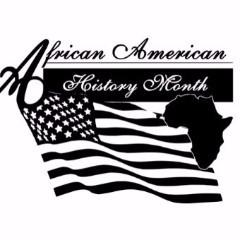
African American History Baker’s Dozen Programs
Includes:
Crime and Punishment in Black America
Critics of the U.S. criminal justice system such as Michelle Alexander and Bryan Stevenson have assailed the rise of mass incarceration with its disproportionate impact on people of color. The war on crime that began in the 1970s was supported by many African American leaders in the nation’s urban centers. The first substantial cohort of black mayors, judges, and police chiefs took office amid a surge in crime and drug addiction. Many prominent black officials, including federal prosecutor Eric Holder, feared that the gains of the civil rights movement were being undermined by lawlessness. They thus embraced tough-on-crime measures, including mandatory sentencing and aggressive police tactics and what Angela Davis called, the prison-industrial complex. In the face of skyrocketing murder rates and the proliferation of open-air drug markets, African-American officials and community leaders believed they had no choice. But the policies they adopted would have devastating consequences for residents of poor black neighborhoods.
Race & Caste in the U.S.
A string of shootings of young African Americans has generated national and international attention. While these killings are nothing new, the proliferation of cell phones, cameras and social media has raised public awareness of police brutality. Systemic questions are being asked. What is the role of racism? The numbers are depressingly familiar. The United States has the largest prison population in the world. Blacks are more likely to go to jail than to college. The Sentencing Project reports, “Once arrested, they are more likely to be convicted; and once convicted, they are more likely to face stiff sentences.” Outside the prison walls is an economy that cannot generate jobs paying decent wages. Affordable housing? What’s that? Programs alleviating poverty are cut back and simultaneously the coercive functions of the state are beefed up. Local police are armed to the teeth with the latest weapons while underfunded schools are crumbling.
Real Politics, Real Poetry
The role of creative people in society has long been debated. Should they focus on their art and stay away from politics? Poets, writers, painters, filmmakers, musicians, artists in general occupy a unique position. Their impact and influence extend far and wide. They illuminate realities in imaginative ways that expand awareness and understanding. Think of Dylan’s “Masters of War” or Arthur Miller’s Death of a Salesman or Picasso’s “Guernica” or Langston Hughes’ poem “Columbia,” where he exposes the depredations of U.S. imperialism. He writes: “In military uniforms, you’ve taken the sweet life / Of all the little brown fellows / In loincloths and cotton trousers. When they’ve resisted, /You’ve yelled, “Rape,” / Being one of the world’s big vampires, / Why don’t you come on out and say so Like Japan, and England, and France, / And all the other nymphomaniacs of power." Recorded at Naropa University.
Activism: Lessons from Mississippi
Mao said, “A single spark can start a prairie fire.” Indeed it can. Rosa Parks is a perfect example of that. Her refusal to sit in the back of the bus led to the Montgomery bus boycott and the beginning of the civil rights movement in the segregated South. They’re some erroneous notions about Rosa Parks. That she was simply tired and had to rest her weary feet. Yeah, she was tired all right. Tired of the racism and discrimination. And Rosa Parks was not some casual activist. She was part of a movement that triggered a wave of protest and eventually broke down an entrenched system of injustice. It didn’t happen overnight. One of the lessons activists have learned is that for their work to be successful it must be sustained over periods of time.
Beginnings: Movements of Possibility
In times of crisis one can simultaneously see danger and opportunity. Today there is nostalgia for an imagined past and a desire to recreate it. It’s a seductive tale. Things were better then. The country was unchallenged in the world. Jobs were plentiful. Minorities, women, gays, and immigrants knew their place. There was order in the land. But over many decades, as a result of struggle and movements, society evolved and changed. We are at a perilous moment. Do we want to go back or continue to move forward building on hard-fought gains? During another perilous time, Martin Luther King, Jr. declared, “We’ve got to massively confront the power structure.” We are at a crossroads: the beginning of a brighter or darker future. The choice is ours. This event was presented by the Lannan Foundation.
White Privilege
White privilege. What’s that? White people have choices and advantages simply because of the color of their skin. Many whites are unaware of it. Peggy McIntosh, a noted women’s studies scholar in her classic essay “White Privilege: Unpacking the Invisible Backpack,” wrote: “I was taught to see racism only in individual acts of meanness, not in invisible systems conferring dominance on my group. I have come to see white privilege as an invisible package of unearned assets that I can count on cashing in each day, but about which I was “meant” to remain oblivious. White privilege is like an invisible weightless knapsack of special provisions, maps, passports, codebooks, visas, clothes, tools and blank checks.”
Racism & Health
For more than a year the public was complaining about the drinking water in Flint, Michigan. The water was so pungent and foamy that one priest had stopped using it for baptisms. The state’s Department of Environmental Quality, confidently announced, “Anyone who is concerned about lead in the drinking water in Flint can relax.” Flint is a majority African-American city. In nearby Detroit, 85% black, schools are heavily infested with rats, roaches and mold. Might those conditions affect the health of an overwhelmingly black student population? In Baltimore, another largely black city, the levels of lead poisoning among children is three times the national rate. Racism is a big part of the social determinants of health. It’s past time we acknowledge that and do something about it.
Beyond Vietnam
Martin Luther King Jr.’s charismatic “I Have a Dream” speech is emblazoned in our historical memories. But another address to a much smaller audience on April 4, 1967 at Riverside Church in New York is no less significant. There King demonstrated his deep understanding of how the system works. He moved beyond a simple race analysis to include class and foreign policy issues. He forcefully denounced the war in Vietnam. He called the U.S. “the greatest purveyor of violence in the world” and he deplored the “giant triplets of racism, extreme materialism and militarism.” Exactly one year later King was assassinated in Memphis where he had gone in solidarity with striking sanitation workers.
By Any Means Necessary: Malcolm X
The singular voice of Malcolm X speaks today to more people than ever before. He endures as a powerful and inspirational figure. It's not hard to understand why. With his mesmerizing oratorical style and cadence, it was Malcolm who redefined the discourse on race. He moved the discussion from notions of "prejudice" and "discrimination" to racism. It was Malcolm who articulated concepts like "community control" and "white power structure" and “the field Negro and the house Negro.” It was Malcolm who made it clear that Blacks were the victims of a system of domination and exploitation that was not regional but national, not superficial but structural, not episodic but ongoing and intentional. His uncompromising critical analysis gave Malcolm his moral authority. He was assassinated on February 21, 1965, but as new generations discover him, his ideas live on. Recorded at Metro State College.
The Black Panther Party
In the sixties and seventies, the Black Panther Party captured the imagination of millions in the U.S. and around the world. The organization also attracted the rapt attention of the Federal Bureau of Investigation. J. Edgar Hoover's FBI launched a sustained counterintelligence program to infiltrate, disrupt and destroy the Panthers. The media and popular history have focused on gun-toting Panther militancy and ignored the group's dedication to community organizing and providing much-needed services. Seale's candid eyewitness account of the Panthers' rise and fall makes for a memorable program.
Recorded at MIT.
The Hidden Dr. King
Dr. Martin Luther King, Jr has been shrink-wrapped and formatted to be innocuous and non-threatening. Dream speeches, desegregation, voting rights, and Selma marches could be accommodated. But when he articulated a critique of the system as a whole then he became a danger to the establishment. That Dr. King has been largely obscured. At Riverside Church in New York he said the Vietnam War was “a symptom of a far deeper malady.” And then he added, “We as a nation must undergo a radical revolution of values. We must rapidly begin the shift from a ‘thing-oriented’ society to a ‘person-oriented’ society. True compassion is more than flinging a coin to a beggar; it is not haphazard and superficial. It comes to see that an edifice which produces beggars needs restructuring.” By giving that speech Dr. King basically signed his own death warrant.
Black Lives Matter
The Black Panther Party was founded fifty years ago. It did much to raise consciousness and pride among African-Americans. It was seen as a threat by the establishment and was thus targeted by Hoover’s FBI in a campaign of infiltration, destabilization and assassination. Today a new generation of activists has arisen in the aftermath of a series of outrageous killings of African-Americans by police. The Black Lives Matter movement has reawakened attention to the historical and contemporary ravages of racism and the persistence of structural inequality such as mass incarceration and unemployment. Who can forget Eric Garner’s plea of “I can’t breathe” before he was choked to death on a Staten Island street? It symbolizes the plight of many blacks trying to survive in crushing poverty. The Black Lives Matter movement holds the potential to reignite a broader push for black liberation.
This event was presented by the Lannan Foundation.
On the Road to Freedom
Juneteenth is the oldest commemoration of the ending of slavery in the United States. June 19th is recognized as African American Emancipation Day or Freedom Day. It marks the day in 1865 when the people of Texas were informed that, in accordance with a presidential proclamation, all slaves were free. It says: “This involves an absolute equality of personal rights and rights of property between former masters and slaves, and the connection heretofore existing between them becomes that between employer and hired labor.” A century and a half later, African-Americans remain at the bottom of almost every social index from infant mortality and homelessness to unemployment and poverty. The road to freedom is a long one and yes there have been some steps forward but this is no time for victory laps. There is too much work to be done. Recorded at the University of Hartford.
Speakers
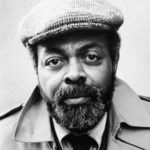
Amiri Baraka
Amiri Baraka was a cultural icon and an iconoclast. He rose to fame in the 1960s as LeRoi Jones. His 1964 off-Broadway play, Dutchman created a sensation. Later he became Amiri Baraka and was a central figure in the Black Arts movement. He was an award-winning playwright and poet and recipient of the PEN/Faulkner Award and the American Book Award for Lifetime Achievement. He was a member of the American Academy of Arts and Letters. He was the author of many books including the classic Blues People. He was brilliant as a homeless sage in the movie Bulworth. His politics were uncompromisingly radical. Through his work he explored the parameters of African-American culture, history, memory, racism, class struggle and political power relationships. As an orator he had a distinct and urgent style. He had a special affinity for jazz and such titans as John Coltrane, Max Roach, and Thelonious Monk. He once said of himself, I’m a revolutionary optimist. I believe that the good guys—the people—are going to win.” He died in 2014. Thousands turned out in his hometown of Newark to honor him.
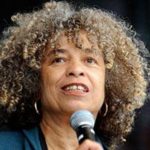
Angela Davis
Angela Davis is one of the iconic figures of this era. Acquitted on conspiracy charges in 1970, after one of the most famous trials in U.S. history, she went on to become an internationally renowned writer, scholar, and lecturer. She is professor emerita at the University of California at Santa Cruz. She has been at the forefront of the movement focusing on the prison industrial complex and its intersection with race, class and gender. She is the author of many books including Women, Race and Class, Blues Legacies and Black Feminism, Abolition Democracy, and Freedom is a Constant Struggle.
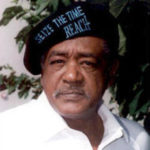
Bobby Seale
Bobby Seale was the founding chair of the Black Panther Party. He is author of Seize the Time and A Lonely Rage.
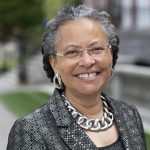
Camara Phyllis Jones
Camara Phyllis Jones is a family physician and epidemiologist whose work focuses on the impact of racism on health. She served as president of the American Public Health Association. She has taught at the Harvard School of Public Health and has worked at the Centers for Disease Control and Prevention. She is Senior Fellow at the Satcher Health Leadership Institute at Morehouse School of Medicine in Atlanta.
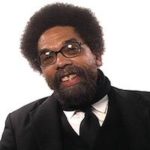
Cornel West
Cornel West is Professor of the Practice of Public Philosophy at Harvard. He has been called “the preeminent African American intellectual of his generation.” With his preacher-like cadences and passionate delivery, he is much in demand as a speaker. Among his many books are Race Matters, The Rich and the Rest of Us and Black Prophetic Fire.
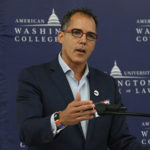
James Forman
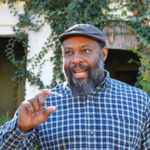
Kali Akuno
Kali Akuno is the co-founder and executive director of Cooperation Jackson, a grassroots eco-socialist organization encompassing a network of worker cooperatives and supporting institutions dedicated to building a solidarity economy in Mississippi and beyond.

Keeanga-Yamahtta Taylor
Keeanga-Yamahtta Taylor writes and speaks on Black politics, social movements, and racial inequality. She is a professor of African American Studies at Princeton. Her articles appear in The New Yorker, The Nation, The Guardian and Jacobin. She is the author of Race for Profit, How We Get Free and the award-winning From #BlackLivesMatter to Black Liberation.
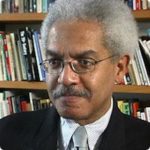
Manning Marable
Manning Marable, a renowned scholar, was a professor of public affairs, political science, history and African American studies at Columbia University. His syndicated column “Along the Color Line” appeared in over 400 newspapers and journals worldwide. He’s the author of many books including How Capitalism Underdeveloped Black America, Living Black History, and his masterwork Malcolm X: A Life of Reinvention. Manning Marble died in New York in 2011.
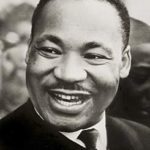
Martin Luther King
Dr. Martin Luther King, Jr., Nobel Peace Prize winner, is one of the 20th century’s most enduring figures. He advocated and practiced civil disobedience and non-violence. He said, “Christ gave us the goals and Mahatma Gandhi the tactics.” He rose to national prominence during the epic Montgomery bus boycott and then went on to spearhead a movement which ended juridical apartheid in the U.S. He was assassinated on the balcony of the Lorraine Motel in Memphis on April 4, 1968.

Michael Eric Dyson
Michael Eric Dyson, a globally renowned scholar of race, religion and contemporary culture, is the Centennial Chair and University Distinguished Professor of African American and Diaspora Studies at Vanderbilt University. A dynamic speaker, he lectures widely. Among his many books are April 4, 1968: Martin Luther King’s Death and How it Changed America, Tears We Cannot Stop, Holler If You Hear Me: Searching for Tupac Shakur, and Jay-Z: Made in America.
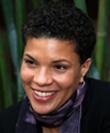
Michelle Alexander
Michelle Alexander is a professor of law at Ohio State University and holds a joint appointment at the Kirwan Institute for the Study of Race and Ethnicity. Formerly the director of the ACLU’s Racial Justice Project in Northern California, she served as a law clerk for U.S. Supreme Court Justice Harry A. Blackmun. She is the author of the bestseller The New Jim Crow.

Tavis Smiley
Tavis Smiley was a PBS and public radio talk show host. He is the author of many books including Death of a King: The Real Story of Dr. Martin Luther King Jr’s Final Year.


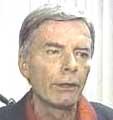
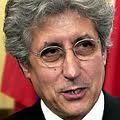

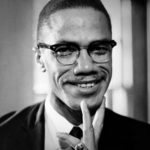

Reviews
There are no reviews yet.